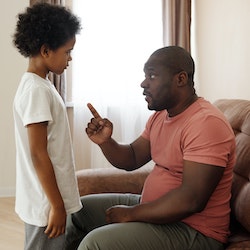In the past few decades, parental fears over their children’s “fragile” egos have dominated thinking. Rather than using failure to improve, participation and effort have become what is celebrated. Parents now see any mistake or set back as a failure, and failure has come to be seen as a terrible disaster with negative consequences as opposed to something that a person could recover and grow from. Rather than taking responsibility for one’s failures, the blame is often cast onto outside factors (e.g. the teacher doesn’t like me, the coach won’t play me, etc…).
The most highly publicized instance of the crisis in parenting is the recent college admissions scandal, dubbed Varsity Blues, where parents paid large sums to cheat on standardized tests and fraudulently pushed their children into the side doors of prestigious universities. Most parents don’t have the resources or the willingness to engage in this type of egregious behavior. But it does serve as an extreme example of parents who are unable or unwilling to let their children earn what they get, no matter the outcome.
In a recent study, administrators at Harvard and Stanford observed that despite spectacular grades and accomplishments, the kids entering college seem unable to take care of themselves and think for themselves. The study points to the fact that for all their lives their parents have chosen their activities, taken care of every need, told them what path to follow, and if any difficulty has occurred, have made sure to fix it for their child. As a result, children have lost the ability to feel competent and to be in charge of their own lives.
This should be a very loud canary, singing in the coal mine that is our society.
I was a baseball player in high school and college. I love the sport and the lessons it is able to teach kids. When the opportunity to coach my son’s team came up, I was very hesitant. I want my kids to play sports and do other activities without their dad hanging around. But an old friend of mine happened to be the head coach, and he convinced me to help out. It turns out I really liked coaching and have been able to do it without being too intrusive to my son. What I found out is that the learning opportunities on and off the field are even better than I had imagined.
Early in this past season, our team had just lost 13-0. In the post-game meeting, my message was, “You have to learn how to lose if you ever want to win.” When I said this to the team, I was met with blank stares. When I said it to the parents, there was some nodding but I could see that not everyone was on board. Shouldn’t I be praising the kids for their every action? Everyone gets a trophy, right? Why didn’t I put only the best players at the ‘important’ positions? How come I didn’t replace kids who were struggling with players who could do better? Didn’t I want the team to win?
It turns out that the parents were open to their kids hearing this message. I didn’t get any push-back at all. Some wanted to talk more about that, and were eager to learn about the life lessons failure can teach their kids. I began having regular conversations with many parents which led me to think that I may have something to offer more people, and thus, An Educated Guess. (for the record, the team began to win games after some early losses).


